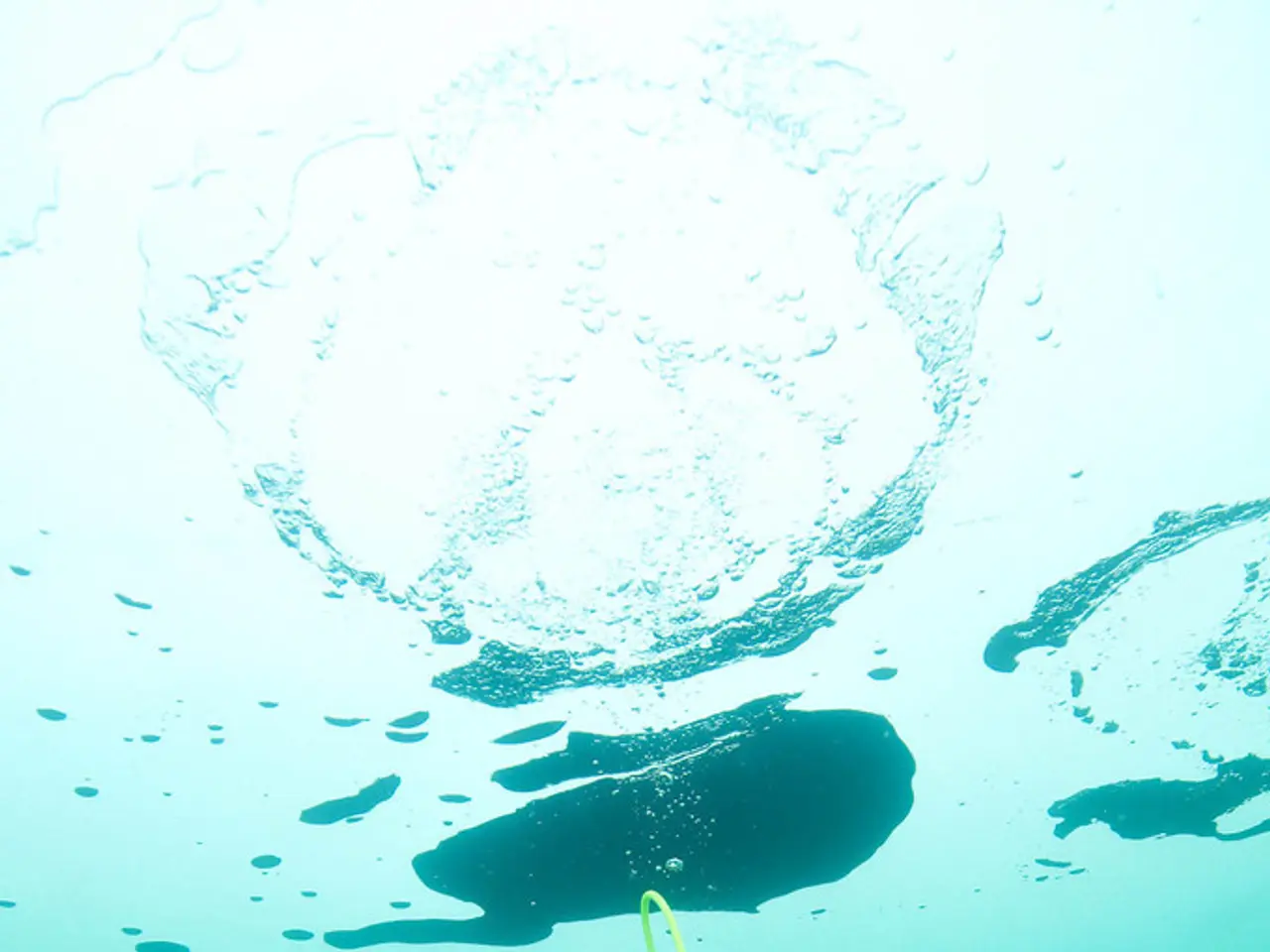Scuba Diving Yields a Worldwide Economic Impact of Up to $20 Billion Annually According to Recent Research
In a groundbreaking study published in the journal Cell Reports Sustainability, a team of international researchers, including Enric Sala from the National Geographic Society and Katherine Millage from UC Santa Barbara, have provided the first comprehensive estimate of the global economic impact of the scuba diving industry [1].
The study reveals that scuba diving contributes between $8.5 and $20.4 billion to the global economy each year [1]. This substantial figure supports approximately 124,000 jobs across 170 countries, with about 80% of those employed being local residents [1][2][3].
The research, which is part of the Atlas Aquatica project endorsed by the United Nations Ocean Decade, expands on a 2021 study focusing on Mexico to the entire globe [3]. The study was led by Andrés Cisneros-Montemayor and calculated the direct and indirect spending on diving activities worldwide [3]. It estimated annual direct spending between $900 million and $3.2 billion, and total spending between $8.5 and $20.4 billion [3].
The economic significance of the scuba diving industry provides leverage to advocate for stronger marine protections through community-based management. Dive tourism, when managed well, can be economically viable, socially equitable, and environmentally sustainable [1].
Scuba diving is an activity dependent on the health of ocean ecosystems, making divers potential allies for conservation. Roughly 70 percent of all marine dives currently occur within marine protected areas (MPAs) [2]. The industry's economic importance encourages policies that invest in diving by increasing marine protections [4].
Atlas Aquatica, a project endorsed by the United Nations Ocean Decade, is supporting dive operators' efforts to organize into cooperatives that have a unified political voice [5]. Atlas Aquatica is currently supporting early pilot dive operator cooperatives in Mexico and Italy [5].
The current study also found that 80% of employees in the scuba diving industry are local or national residents [1]. The researchers recommend establishing standardized monitoring systems across the diving industry, formally including dive operators in marine management decisions, and recognizing ecotourism as a central component of sustainable ocean-based economies [2][3].
Increased ocean conservation could increase dive revenue by attracting more divers who are willing to pay higher prices [2]. The study positions dive tourism as a model for the "Blue Economy", showing how coastal communities can prosper while protecting their marine resources [1][4].
The study, supported by the National Geographic Society, shows scuba diving does not degrade the environment like extractive industries [4]. Aburto-Oropeza stated that the study encourages policies that invest in diving by increasing marine protections [4].
In conclusion, marine dive tourism is a multi-billion-dollar global industry that not only fuels local economies by providing employment and stimulating service sectors but also contributes significantly to ocean conservation by encouraging sustainable use and protection of marine ecosystems through local community engagement and economic incentives [1][2][3][4].
References: [1] Cisneros-Montemayor, A., et al. (2022). The global economic impact of marine dive tourism. Cell Reports Sustainability. [2] Atlas Aquatica. (2022). Building organizational capacity within the diving sector and supporting their voices in international dialogues for sustainability. [3] Sala, E., et al. (2022). The global economic impact of marine dive tourism: A comprehensive estimate. Marine Policy. [4] Aburto-Oropeza, J., et al. (2022). The economic and environmental benefits of marine dive tourism: A case study from Mexico. Environmental Science & Policy. [5] Millage, K., et al. (2022). Atlas Aquatica: Supporting dive operators' efforts to organize into cooperatives. The Journal of Sustainable Tourism.
- Regional and national environmental-science policies may benefit from the insight that over 70% of all marine dives occur within marine protected areas.
- The economic significance of the scuba diving industry in sports extends beyond job creation and economic stimulation, as it also promotes environmental-science initiatives for the sustainable maintenance of ocean ecosystems.






